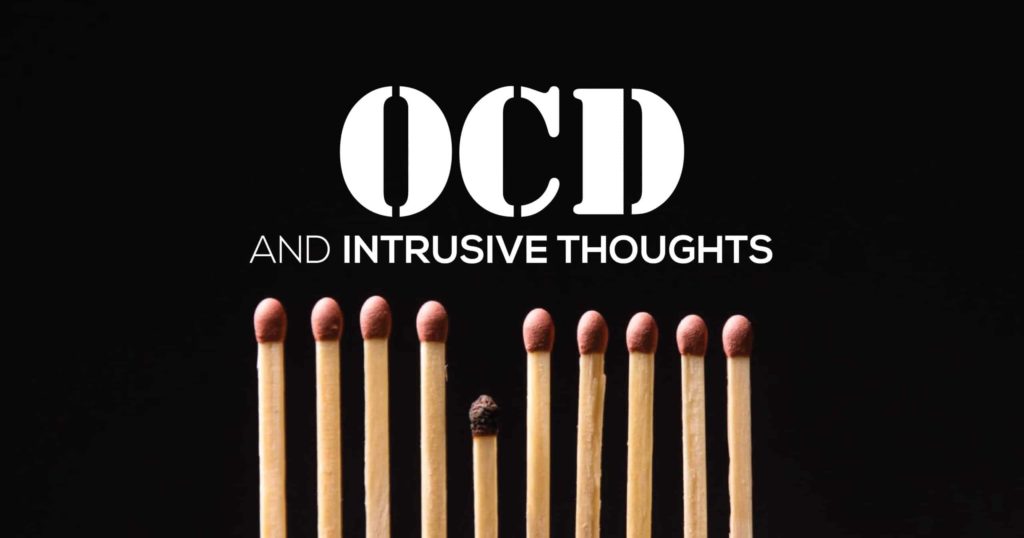Obsessive-Compulsive Disorder (OCD) manifests in various forms and may strike people of any age, gender, or ethnic background. Intrusive thoughts are a symptom of obsessive-compulsive disorder and may be distressing for those who experience them.
OCD is characterized by intrusive thoughts that interfere with daily life. You may attempt to deny or eliminate your obsessions, but it will only worsen things. You feel the need to engage in obsessive behavior to reduce your levels of stress. Negative ideas or impulses persist despite attempts to block them out of one’s mind. The result is increased ritualistic actions, further perpetuating the OCD’s destructive cycle.
One common symptom of OCD is an extreme aversion to touching anything that could be contaminated. If you have a phobia of germs, you could wash your hands excessively until they are raw and cracked. Please continue reading to learn more about OCD and Intrusive Thoughts and tips on stopping these thoughts.
Signs of OCD and Intrusive Thoughts
Because a different set of triggers often characterizes each form of OCD, the intrusive thoughts experienced by those who suffer from it may vary widely. Most intrusive thought examples induce anguish, anxiety, and panic attacks (in extreme situations) regardless of the presence or absence of any particular stimuli. In most cases, people with OCD will do whatever to prevent themselves from thinking about these disturbing things.
Typical Obsessions of OCD and Intrusive Thoughts
The specific kind of OCD a person has will determine the nature of their intrusive thoughts. Obsessions and intrusive thoughts may take many forms, but some of the most prevalent are:
- Extreme apprehension about carrying out a dreaded behavior or giving way to an uncomfortable situation
- Contamination phobia (Contamination OCD)
- Apprehension of Sin and Blasphemous Acts
- Having persistent doubts about one’s sexuality (hOCD)
- Worry that you could hurt yourself or other people (Harm OCD)
OCD and Intrusive Thought Compulsions
The compulsions a person develops to counteract and alleviate the anxiety brought on by their intrusive thoughts also vary throughout the various forms of OCD. Common compulsions that unwanted thoughts or pictures might trigger include:
- Repeating a routine again and over in an attempt to calm down
- Verifying that no damage has been done by evaluating oneself or others
- Meaningfully reflecting
- Looking to others for comfort
- Extreme concern about getting something “correctly.”
- Preventing oneself from coming into contact with anything or anybody that can cause an attack of intrusive thoughts
Intrusive thoughts may force a person to repeatedly engage in the same obsessive activities, which can get in the way of getting anything done or developing meaningful connections. Also, intrusive thoughts may profoundly affect a person’s daily life, leading to significant disruptions in relationships and productivity.
How to Stop Intrusive Thoughts
The persistence of intrusive thoughts gives them great psychological force. They’re upsetting because they seem so foreign. To control intrusive thoughts, you need to learn to be less affected by them. It is possible to triumph over these thoughts and set your mind free. Remember these guidelines the next time an unwanted notion enters your head.
Don’t Push the Thought Away.
When confronted with a disturbing concept, many individuals immediately attempt to push the thought out of their minds. Unfortunately, this approach has the opposite impact and causes you to dwell on the unwanted idea even longer. Instead of forcing yourself to ignore the notion, focus on anything else. If you’re feeling bored, consider doing a puzzle or sitting to read a good book.
You should avoid constantly moving between different jobs. Get lost in one thing, but make sure it has nothing to do with the distracting notion. It wouldn’t make sense, for instance, to read a novel about a murder to distract yourself from morbid thoughts.
Locate the Triggers of your Intrusive Thoughts
Everyday experiences and encounters may shape your mind and the ideas you have. Over time, keeping track of your intrusive thoughts helps shed light on their underlying tendencies.
Writing down your ideas is great, but keeping track of your emotions and daily activities is also important. If you find yourself having similar ideas again, it might be helpful to look back at your notes and see if any patterns emerge.
Perhaps these feelings surfaced because you had a lot of time on your hands, or maybe they followed your viewing of a particularly disturbing film. By keeping an eye on these trends, you may be able to identify and address the underlying problem.
Learn to Tell Your Thoughts from Your Experiences
Many individuals who have intrusive thoughts worry that they may act on a disturbing notion and do damage to themselves or someone they care about. They want to know what’s behind these ideas and be reassured that they won’t act on them.
However, as the name implies, intrusive thoughts are only that — ideas that won’t let you be. Even if your OCD or anxiety tells you otherwise, you should remind yourself that these ideas are not a portent of doom, so there’s no intention to act on them.
It’s important to acknowledge these thoughts and feelings without letting them overtake you. Over time, you may reduce your concern by treating intrusive thoughts as if they were no more than any other thought.
Consider Therapy
People sometimes struggle with emotions of guilt and shame when they acknowledge experiencing intrusive thoughts. They make an effort to cope with their inner turmoil independently, and they do it by concealing it from others around them.
However, sharing your thoughts with a trusted friend or loved one might positively impact you. Being honest and open about your emotions and experiences will help you get insight into your circumstance.
Some individuals find it simpler to strike up a conversation with a total stranger than with a familiar face. Counseling is still recommended, however. Individual and group therapy are only two of the numerous options available. Take your time learning about the many possibilities.
OCD Treatment Options in San Diego
OCD treatment programs may consist of medication, therapy, or something else entirely. To learn more about OCD treatment options available in San Diego, contact the Mental Health Center of San Diego at (858) 258-9883 today!















